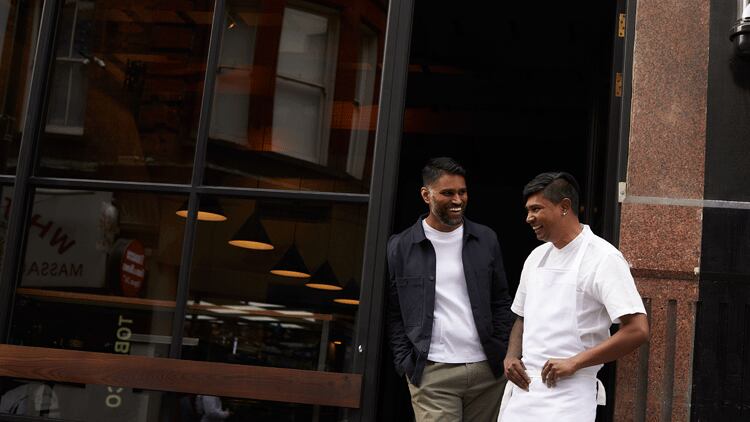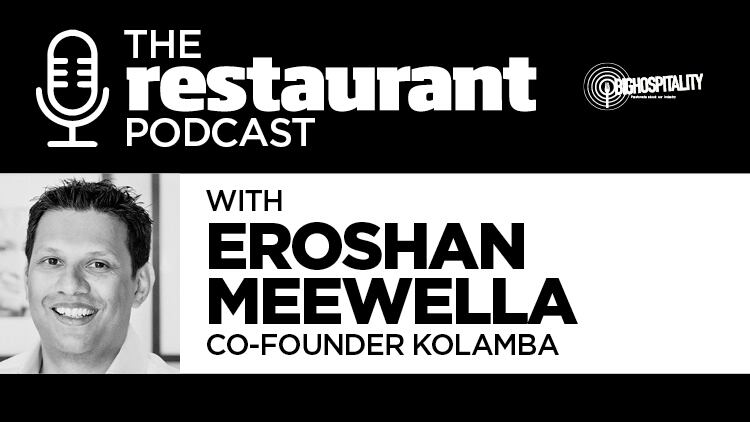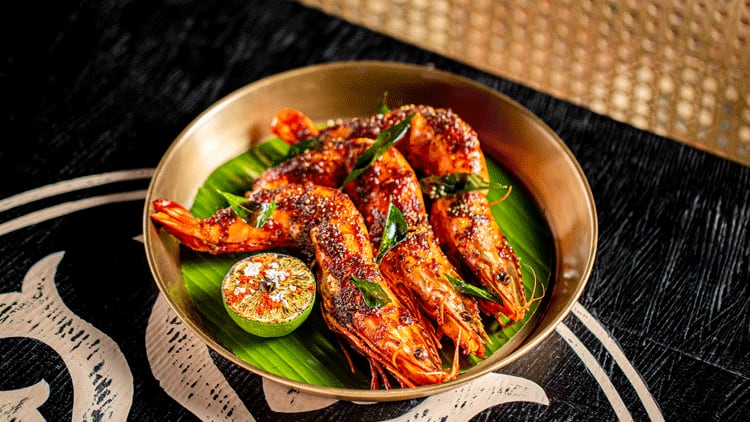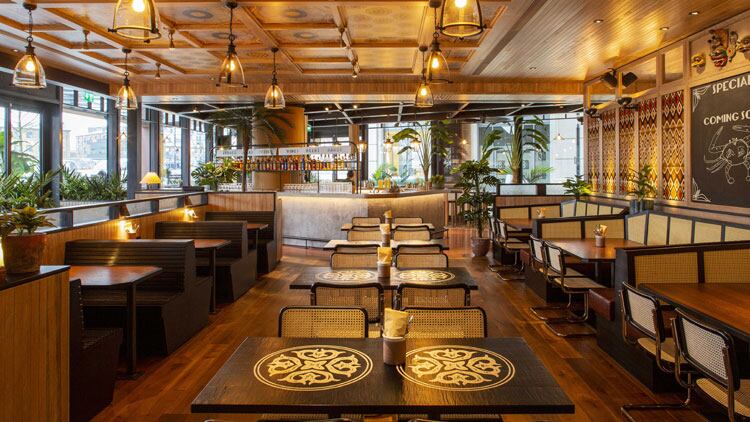Sri-Lankan restaurant Paradise opened at the start of last year on Soho's Rupert Street in the former Spuntino site serving dishes based on family recipes influenced by Portuguese, Malay, South Indian and Dutch cuisine. The restaurant initially opened with Charith Priyadarshana as its chef but he has since been replaced by Sri Lanka-born MasterChef: The Professionals semi-finalist Malin de Silva.
What does Malin’s appointment mean for Paradise?
Dom Fernando: The overall concept is the same but nearly all the dishes are new. I founded Paradise in early 2020 so we’ve barely had a summer menu. What we’re offering at the moment is very fresh and seasonal, which is partly down to us now having a lot of tables outside. We still have some punchy dishes such as the stir-fried devilled prawns and triple-cooked potatoes but it's more nuanced - you don't want an overload of seriously hot food when it's really hot outside.
Malin de Silva: We’re using great produce so I want that flavour to come through - I don't want to blow people's heads off. I want them to experience different layers of taste.
Where did you cook prior to Paradise?
MS: I’ve spent my career cooking in Western restaurants, namely The Latymer under Matt Worswick and Fraiche under Marc Wilkinson. My knowledge of Sri Lankan food mostly comes from my mum. When I appeared on Masterchef: The Professionals I looked to combine those two worlds together.
DF: That’s what makes Malin so suited to Paradise. The other Sri Lankan places do their thing fantastically, but we are trying to push the boundaries of Sri Lankan food to offer something that’s different and contemporary. We do have people come in that are surprised that the dishes we’re offering aren’t traditional. But I’m okay with that because the ingredients we use and the flavours we create are very authentic.
What sets Sri Lankan food apart from that of Southern India?
MS: The flavours are very different and distinctive. We use many of the same spices but the blends aren’t the same. We typically rely on three different mixes: meat, fish and vegetable, and these are each produced in roasted and unroasted styles. Each household typically makes their own one. We also use a lot of coconut milk, which is rarely used in India, it's more likely to be oil, ghee or yoghurt.
DF: It's lighter and more fragrant. It's closer to Thai and Indonesian in that respect than it is to India. There's also a lot of variation in Sri Lanka - everyone has different versions of each dish. People rarely use recipes. Our menu represents different regions; we have some dishes that are mellow and some that are very spicy. Creating contrasts is important, especially as traditionally all the dishes are eaten together.
Why has the past few years seen such an explosion in Sri Lankan restaurants?
DF: Since the end of the civil war there's been a lot more tourism. That's now having an effect on our restaurant scene, just as it did with Thai food 20 to 30 years ago. It's going to grow and grow.
MS: People's eyes are being opened to the fact that it is different to Indian food. They understand it to some extent and that means there can be more variation in the marketplace.
DF: Sri Lankan food has always been around in places such as Tooting, Wembley, Harrow and East Ham but it hasn't been aimed at the mass market. Hoppers played a big role in making it a commercial thing by putting it right into the middle of Soho and there’s even a chain rolling out nationally (The Coconut Tree).
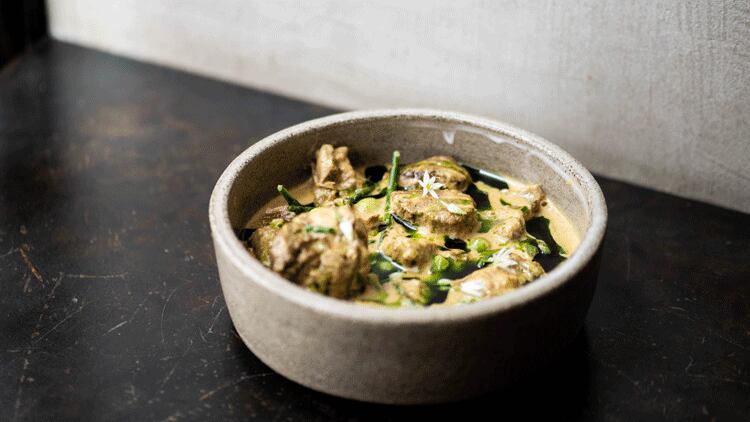
Where do you source your ingredients?
DF: I spend a lot time on supply line because it makes a big difference when you use things that are actually from Sri Lanka. There are specialist Sri Lankan wholesalers in London - of course - but they don't necessarily source the same things we'd have access to in Sri Lanka. For example, chillies will usually be grown in Europe. I've had to create my own network to get the things I want, and we're looking at working with a grower in Cornwall to grow some key ingredients.
MS: It really does make a difference to use products that are actually grown in Sri Lanka, for example the ginger they use there is totally different to what you would find in a UK supermarket - it's far more intense.
How easy is it to find chefs that can cook Sri Lankan food?
DF: That's one of the cuisine's biggest challenges. Not many people know how to cook it. You need chefs that are either Sri Lankan or South Indian, or alternatively chefs that have a genuine interest in cooking it.
MS: It's difficult to teach to people that have not grown up with it because the flavour profiles are so different. You need to understand those flavours and taste constantly to become attuned to it.


